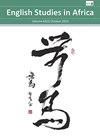Authoritarian Populism and the Republic of Heaven in Philip Pullman’s
IF 0.5
4区 文学
0 LITERATURE
引用次数: 0
Abstract
Abstract The chief antagonist of Philip Pullman’s His Dark Materials series is the Magisterium, a powerful multinational religious organization reminiscent of the Roman Catholic Church. In the first two novels of the new Book of Dust trilogy, Pullman expands upon the original series and further explores the authoritarian populist tactics utilized by the various branches of the Magisterium to assert its authority and to exert a commanding influence over state politics. Set in opposition to the Magisterium is the republic of heaven, which invokes the underlying principles of Milton’s republicanism and seeks to establish a democratic and egalitarian society. This paper examines Pullman’s representation of authoritarian populism in the agencies of the Magisterium, and contrasts this with the democratic vision of the republic of heaven. It argues that in drawing on Milton’s republicanism, Pullman is less concerned with a specific mode of government than with the underlying principles of republicanism that seek to enable the shared participation of the members of a society in its governance and which serve as a means to circumvent the potential for tyranny that accompanies the concentration of power. In invoking Milton, Pullman, however, fails to account for the tension in Milton’s politics between his support for a free and equal polity and his elitist stance towards governance founded upon a belief in humanity’s inherent fallibility. Unlike Milton, whose view of democracy is informed by a belief in Biblical ‘truth,’ Pullman conceives of democracy as a system that underpins pluralism and which facilitates the dynamic exchange of a socio-political collective. His representation of the Magisterium and the republic of heaven are shown to be directly concerned with the dangers posed by hegemonic ideology, as well as the oppressive forms that it can take.普尔曼的专制民粹主义与天国
摘要菲利普·普尔曼(Philip Pullman)的《黑暗物质》(His Dark Materials)系列的主要反对者是Magisterium,这是一个强大的跨国宗教组织,让人想起罗马天主教会。在新的《尘埃之书》三部曲的前两部小说中,普尔曼对原系列进行了扩展,并进一步探讨了司法机构各分支为维护其权威和对国家政治施加压倒性影响而使用的威权民粹主义策略。与君主政体相对立的是天堂共和国,它援引了米尔顿共和主义的基本原则,并寻求建立一个民主和平等的社会。本文考察了普尔曼在君主机构中对专制民粹主义的表现,并将其与天国的民主愿景进行了对比。它认为,在借鉴米尔顿的共和主义时,普尔曼与其说关心一种特定的政府模式,不如说关心共和主义的基本原则,这些原则旨在使社会成员能够共同参与其治理,并作为规避权力集中带来的暴政的一种手段。然而,在援引米尔顿的话时,普尔曼没有解释米尔顿政治中的紧张关系,即他对自由平等政体的支持和他对建立在人类固有易犯错误信念基础上的治理的精英主义立场。与米尔顿不同的是,他对民主的看法是基于对《圣经》“真理”的信仰,普尔曼认为民主是一种支持多元主义并促进社会政治集体动态交流的制度。他对君主政体和天国的描绘被证明与霸权主义意识形态带来的危险以及它可能采取的压迫形式直接相关。
本文章由计算机程序翻译,如有差异,请以英文原文为准。
求助全文
约1分钟内获得全文
求助全文

 求助内容:
求助内容: 应助结果提醒方式:
应助结果提醒方式:


